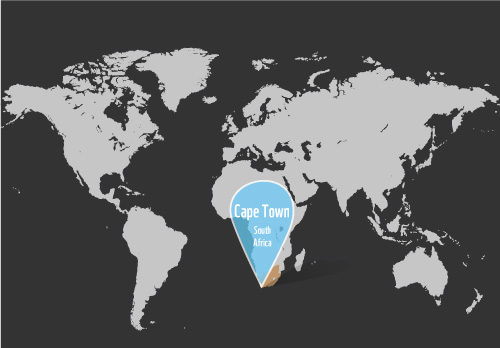The WWF is run at a local level by the following offices...
- WWF Global
- Adria
- Argentina
- Armenia
- AsiaPacific
- Australia
- Austria
- Azerbaijan
- Belgium
- Bhutan
- Bolivia
- Borneo
- Brazil
- Bulgaria
- Cambodia
- Cameroon
- Canada
- Caucasus
- Central African Republic
- Central America
- Central Asia
- Chile
- China
- Colombia
- Croatia
- Democratic Republic of the Congo
- Denmark
- Ecuador
- European Policy Office
- Finland
CAPE TOWN

Solar Water Heating
Recently, Cape Town intensified the solar water heating program with a mass roll out that planned to have 500,000 installations in place by the end of 2015, thereby reducing electricity demand by 5%. To achieve this, it has launched a residential solar water heater accreditation and finance program to encourage mid- to high-income residents to reduce their consumption of electricity. Cape Town has several programs to reduce its energy consumption:
-
greening its 6,000-vehicle fleet
-
setting up a green purchasing policy
-
replacing its traffic lights and street lights and retrofitting municipal buildings.
Integrated Rapid Transit
Transport is responsible for 50% of Cape Town’s citywide energy consumption, and the city has started the process towards a modal shift, with ambitious plans for an integrated public transport system and for an improved pedestrian and cycling infrastructure. It completed the first phase of Integrated Rapid Transit – an initiative to transform the public transport system – in 2010 with the opening of MyCiTi, a BRT system of dedicated busways using a fleet of modern, energy-efficient buses. Cape Town is expanding its bicycle and pedestrian provision in recent years, too.
Cape Town lies within the Cape Floristic Region, a UNESCO World Heritage Site, and is a global hotspot of biodiversity with the highest number of threatened plant species of any city in the world. To protect this unique nature, Cape Town’s Biodiversity Network has identified the minimum natural vegetation remnants needed to conserve the city’s biodiversity, and has taken action to protect 16 nature reserves.
The city council bases this sustainability work on a participatory approach, bringing together residents, NGOs, and local businesses. Another example is the Smart Living Campaign, aimed at promoting sustainable lifestyles amongst city staff, the private sector, local communities, and schools, as well as the Youth Environmental School (YES) Program, which arranges a year-round program of activities for learners and educators.
Want to know more about Urban solutions?
Contact Barbara Evaeus
Global Communications Manager,
WWF One Planet City Challenge
+46 70 393 9030
barbara.evaeus@wwf.se
Text by: Martin Jacobson
Last edited: 2017-03-15


